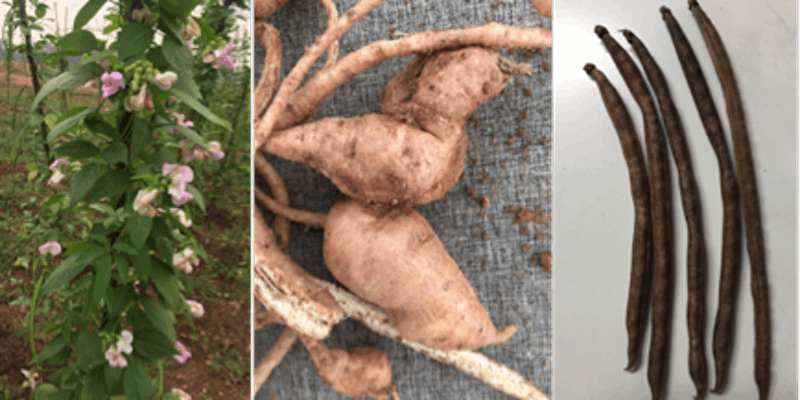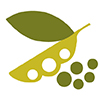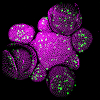Can one plant produce both tasty and nutritious beans and tubers? Yes, the African yam bean can. Not only does it grow high-protein edible grains and tubers, this drought-resilient crop also replenishes the soil and is highly adaptable to varying-climates.
Once prevalent across West and Central Africa, the African yam bean has been taken over by other commercial crops.
Because it is a legume, the African yam bean has a very high protein content and is a more nutritious source of food than cassava, maize or rice. Unfortunately, the African yam bean has been forgotten due to a westernised diet and global trends of crop homogeneity.
Dr Nadia Radzman, who is a plant scientist at the Sainsbury Laboratory Cambridge University (SLCU), said: "There's a urgent need to solve malnutrition for children in Africa where cassava is the staple food crop grown by poor farmers on marginal lands. Cassava contributes to about 40% of the food consumed in tropical Africa. However, cassava is very limited in nutrients, particularly protein and micronutrients like vitamin A, iron and zinc."
The African yam bean is actually a forgotten crop, also called an underutilised crop, or another term for it is orphan crop. It is a crop that was once consumed traditionally, in this case, in Africa, but is now only eaten in rural areas where poor farmers grow the crop as a security crop for local consumption.
Dr Radzman has teamed-up with Dr Curie Park, from the Institute for Manufacturing (IfM), at the University of Cambridge, and they secured initial funding for a project that utilises their expertise in legume biology and entrepreneurial innovation to promote the African yam bean as a sustainable solution for food insecurity, malnutrition, and soil depletion in Africa.
Dr Radzman believes the African yam bean (Sphenostylis stenocarpa) could help to reduce devastating food insecurity and initiated the interdisciplinary research collaboration between UK and Nigerian partners on African yam bean rehabilitation. She explains: "The African yam bean tuber has a protein content of 20% (22 - 25% in the edible beans), which makes it a superior alternative to other sources such as cassava (2%) or maize (5.4%). This is important because consumption of carbohydrate-intensive, low-protein diets causes malnutrition and stunting in 32% of children under 5 years old."
Dr Radzman’s major research interest is in legume root and nodule development, and she commented: “Tuberous legumes such as the African yam bean are understudied within the legume biology field. Yet, through my studies, I could see the enormous potential it had to solve food insecurity within Africa. This drought-tolerant crop produces high-protein beans and tubers for human consumption and can fix atmospheric nitrogen as fertilisers."
The project is in its early stages, but they have interviewed farmers and identified the key traits that need to be bred into the African yam bean crops. Dr Radzman added: "The farmers have asked us to select for plant traits that produce larger tubers and shorter cooking time for the beans - something that we can work on achieving by using techniques in plant biology. We also have preliminary results to suggest how the tuber develops so we can improve the tuber characteristics too."
Dr Radzman explained how the collaboration with Dr Park had come about: "Although we both work for the University of Cambridge, I met Dr Curie Park during the WE Lead Food Programme ‘Leadership for Impact’ module in Madrid, and her expertise combined with mine has made this project possible. A core part of the WE Lead Programme is the ability to network with, and share ideas with, like-minded women”.
Dr Park said: “I am a Lead Researcher at the Centre for Industrial Sustainability, Institute for Manufacturing at the University of Cambridge, with a keen interest in sustainable design, disruptive business model innovation, business value tool development and effective visualisation of research outcomes. My innovative skills, knowledge and connections combined with Nadia’s scientific knowledge enabled us to put together a strong proposal for project funding.”
Climate change is having the greatest affect in Africa. The long-term impact of this project is:
- Improved food security - less reliance on imported chemical fertilisers;
- Improved resilience against weather extremes - through promoting native drought-tolerant crops;
- Improved resilience against soil depletion - through promoting soil-replenishing crops;
- Hunger alleviation - health improvement in Nigeria and across Africa;
- Enhanced innovation - capacity for local farming communities; and
- Local empowerment - through appreciation of indigenous crop and planting/cooking traditions.
Dr Radzman went on to say: “I had absolutely no idea how to go about promoting the enormous benefits of the African yam bean. Fortunately, my attention was drawn to the world-class EIT Food WE Lead Food Programme, which provided me with the inspiration and confidence to believe that my knowledge and expertise could make a difference.”
Initial funding to support projectDr Nadia Radzman and Dr Curie Park were awarded a grant worth about £80,000 under the Scheme 1 Pump-priming grant of Global Challenges Research Fund (GCRF). The interdisciplinary project, "Peas’n Chips Entrepreneurs: Rehabilitating African Yam Bean for Food Resilience and Soil Health in Nigeria", built on Dr Radzman's initial work and allowed her to continue her collaboration with the International Institute of Tropical Agriculture (IITA) in Nigeria. The project aims to empower African scientists and subsistence farmers with African Yam Bean as an alternative and sustainable crop. Dr Radzman is leading the plant physiology part of the project and Dr Park is leading the capacity building for entrepreneurship. This start-up funding finishes in July and the researchers are looking for additional support to progress their project plans. They can be contacted at nadia.radzman@slcu.cam.ac.uk and cp538@cam.ac.uk. |
The EIT Food WE Lead Food Programme’s aim is primarily to engage, educate and equip current and future women leaders in the food industry, and enable them to lead entrepreneurially to deliver a sustainable, diverse, and equitable food sector. In addition, contributing to increasing the representation of women assists with realising the benefits of diversity on creativity, innovation, and sustainability as well as the performance of the sector.
Adapted from a press release initially published by the WE Lead Food Programme.
African yam bean image: courtesy of the International Institute of Tropical Agriculture (IITA).
Initial funding to support projectDr Nadia Radzman and Dr Curie Park were awarded a grant worth about £80,000 under the Scheme 1 Pump-priming grant of Global Challenges Research Fund (GCRF). The interdisciplinary project, "Peas’n Chips Entrepreneurs: Rehabilitating African Yam Bean for Food Resilience and Soil Health in Nigeria", built on Dr Radzman's initial work and allowed her to continue her collaboration with the International Institute of Tropical Agriculture (IITA) in Nigeria. The project aims to empower African scientists and subsistence farmers with African Yam Bean as an alternative and sustainable crop. Dr Radzman is leading the plant physiology part of the project and Dr Park is leading the capacity building for entrepreneurship. This start-up funding finishes in July and the researchers are looking for additional support to progress their project plans. They can be contacted at nadia.radzman@slcu.cam.ac.uk and cp538@cam.ac.uk. |
The EIT Food WE Lead Food Programme’s aim is primarily to engage, educate and equip current and future women leaders in the food industry, and enable them to lead entrepreneurially to deliver a sustainable, diverse, and equitable food sector. In addition, contributing to increasing the representation of women assists with realising the benefits of diversity on creativity, innovation, and sustainability as well as the performance of the sector.
Adapted from a press release initially published by the WE Lead Food Programme.
African yam bean image: courtesy of the International Institute of Tropical Agriculture (IITA).







